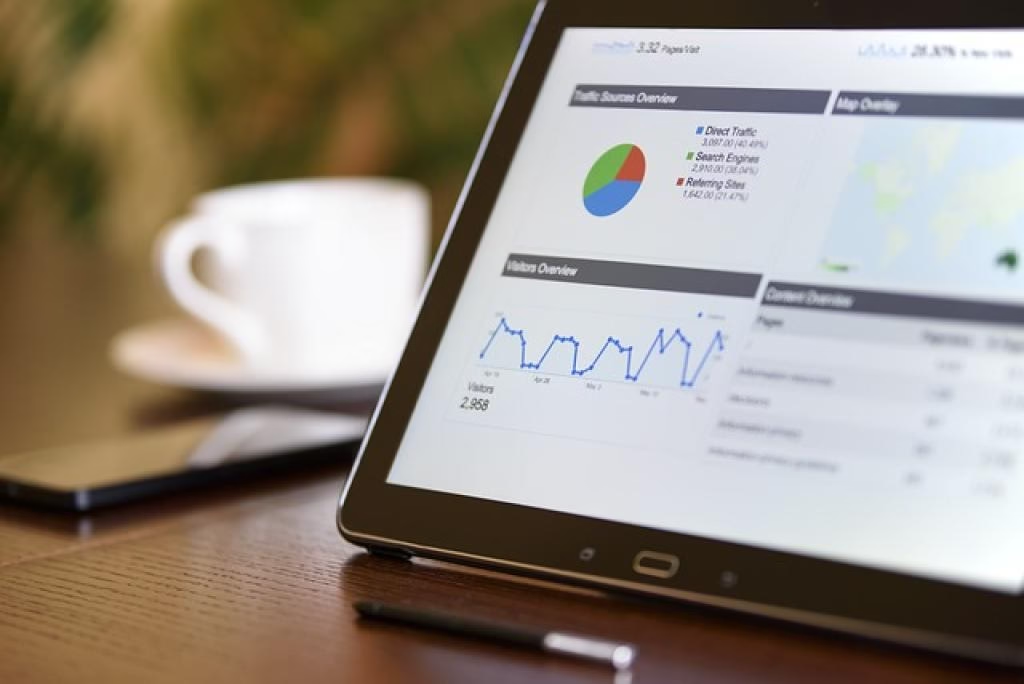The world of marketing is evolving rapidly, and staying ahead means embracing cutting-edge technology. Artificial Intelligence in marketing is revolutionizing marketing strategies, offering businesses unprecedented ways to engage customers, enhance efficiency, and boost sales.
Once a futuristic concept, AI has now become an integral part of many successful marketing campaigns. It helps brands personalize experiences, predict consumer behavior, and automate routine tasks, providing marketers with more time and insights to craft compelling messages.
In this guide, we will explore how AI can transform your marketing efforts. From understanding customer preferences in real-time to optimizing advertising spend, AI-powered tools offer solutions that drive results. Discover how to leverage these technologies to step up your marketing game and stay competitive in an ever-changing landscape.
Whether you’re new to AI in marketing or looking to enhance your existing strategies, this comprehensive guide will provide the knowledge and tools to harness the power of AI effectively in your campaigns. Let’s dive into the future of marketing together!
Understanding AI in Marketing: A Brief Overview
At its core, Artificial Intelligence in marketing refers to leveraging machines and algorithms to amplify marketing campaigns’ effectiveness and efficiency. AI processes large data sets, gleaning insights that human analysis alone might miss.
One of the primary assets of AI is its ability to understand and predict customer behavior. By analyzing browsing patterns, purchase history, and engagement metrics, AI tools create micro-targeted profiles, allowing marketers to tailor messages with precision.
The Role of Machine Learning
Machine learning, a subset of AI, plays a pivotal role by enabling systems to improve from experience. With every interaction, the algorithms learn, refining their output to enhance future marketing efforts. Whether it’s personalizing email campaigns or optimizing social media ads, machine learning adapts to maximize impact.
AI also powers chatbots and virtual assistants, revolutionizing customer service. These tools provide instant responses and solutions, enhancing user satisfaction and reducing the workload for human representatives.
As AI technology continues to evolve, marketers have more tools at their disposal than ever before. Embracing AI is less about replacing human creativity and more about augmenting it—offering smarter solutions to age-old marketing challenges.
The Benefits of AI Implementation in Marketing
Integrating AI into marketing campaigns offers numerous advantages that go beyond traditional strategies. One significant benefit is enhanced personalization. AI analyzes individual preferences in real time, allowing brands to deliver content that’s highly relevant to each consumer, leading to increased engagement and conversions.
AI also improves efficiency by automating repetitive tasks. Routine activities like data analysis, social media monitoring, and email marketing can be handled by AI, freeing up marketers to focus on strategy and creativity.
Improved Decision-Making
With AI, decision-making becomes more informed and data-driven. By processing vast amounts of data swiftly, AI provides actionable insights, helping marketers identify trends, customer preferences, and potential issues before they arise. This helps businesses make smarter, faster decisions.
Cost-effectiveness is another major advantage. AI reduces human error and lowers operational costs, making marketing budgets stretch further. Campaigns become more efficient and deliver a higher return on investment.
Finally, AI facilitates better customer service. By using AI-driven chatbots, companies can provide customers with 24/7 support, enhancing user experience and brand loyalty. As AI technology continues to evolve, embracing these benefits will be crucial to staying competitive in a digital-first world.
Key AI Technologies Transforming Marketing Campaigns
AI technologies are reshaping the way marketing campaigns are designed and executed. One such technology is predictive analytics, which uses data to forecast future consumer behaviors and trends. This allows marketers to anticipate customer needs and tailor their strategies accordingly.
Natural Language Processing (NLP) is another game-changer. NLP enables machines to understand and respond to human language, fostering improvements in chatbots and harnessing sentiment analysis from customer feedback on social media platforms.
Computer Vision
Computer vision taps into the power of AI to analyze and interpret visual data. It allows marketers to automate image recognition, ensuring that visual content aligns with brand standards or assisting in creating shoppable experiences from images.
Robotic Process Automation (RPA) enhances productivity by automating routine marketing tasks. RPA takes over repetitive activities like content scheduling or report generation, ensuring consistency and saving valuable time for team members.
Lastly, programmatic advertising uses algorithms to buy and place ads in real time, aligning them with the target audience’s browsing habits and preferences. This approach maximizes ad spend efficiency and optimizes results, demonstrating the profound impact of AI on modern marketing practices. As these technologies continue to evolve, their potential to transform marketing is limitless.
Maximizing ROI Through AI-Driven Marketing Strategies
AI-driven marketing strategies offer innovative ways to maximize return on investment (ROI). By leveraging AI, companies can optimize their marketing efforts at every stage. Tailoring content through AI-driven insights ensures messages resonate with the target audience, enhancing engagement and conversion rates.
One effective strategy is incorporating AI for enhanced audience segmentation. By analyzing customer data, marketers can identify distinct segments that respond differently to various marketing tactics. This precision allows for targeted campaigns that speak directly to consumer interests and needs, resulting in higher ROI.
AI also aids in optimizing ad spend. By using machine learning algorithms, businesses can determine the most effective channels and times for ad placements. This data-driven approach minimizes waste and allocates resources to where they’re most impactful, improving cost efficiency.
Not to mention, AI provides continuous performance monitoring. Real-time analytics offers instant feedback, allowing for immediate adjustments to live campaigns. Marketers can swiftly identify underperforming elements and tweak strategies to enhance outcomes, ensuring resources are utilized effectively.
Ultimately, AI’s ability to provide deep insights and adaptability transforms marketing investments into strategic tools that drive business growth. By embracing AI-driven marketing strategies, businesses can achieve significant gains in both efficiency and financial performance.

Implementing AI Tools in Your Marketing Stack
Incorporating AI tools into your marketing stack can seem daunting, but with a strategic approach, it can significantly enhance your operations. Start by identifying specific goals you aim to achieve—be it personalization, efficiency, or deeper insights. Clear objectives will guide you in selecting the right AI solutions.
Research and select AI tools that align with your marketing needs. Look for platforms offering comprehensive analytics, automation capabilities, and integration options. Popular tools like chatbots, CRM systems enhanced by AI, and customer service automation can offer immediate benefits across your marketing activities.
Seamless Integration
Ensure the AI tools can be integrated seamlessly into your existing systems. Compatibility is crucial to maintaining a fluid workflow and leveraging your current resources effectively. Check for API capabilities and the tool’s adaptability to updates or scaling requirements.
Provide training for your team to harness these tools’ full potential. AI is most powerful when the people using it understand its capabilities and limitations. Regular training sessions and workshops can bridge knowledge gaps and inspire innovative uses.
Finally, monitor performance regularly. Use AI’s analytical power to track metrics and gather feedback, continually refining your approach to maximize impact. With AI tools effectively implemented, your marketing stack will be poised for success in a competitive landscape.
The Bottom Line: Enhancing Marketing Campaigns with Artificial Intelligence
In today’s fast-paced digital world, artificial intelligence is more than just a buzzword—it’s a transformative force in marketing. As we’ve explored, AI offers invaluable tools that empower marketers to deliver personalized experiences, automate mundane tasks, and gain deeper insights into consumer behavior.
The potential benefits of AI in marketing are vast. From improving customer interactions with chatbots to optimizing ad spend through smart algorithms, businesses can achieve higher levels of efficiency and engagement. AI-driven strategies not only enhance operational processes but also significantly boost return on investment.
However, the successful implementation of AI requires a thoughtful approach. It involves setting clear goals, choosing the right tools, ensuring compatibility with existing systems, and empowering teams through training. These steps lay the groundwork for a seamless transition to AI-enhanced marketing strategies.
Looking ahead, the role of AI in marketing will only continue to grow. It’s essential for businesses to stay adaptive, embracing the latest AI advancements to remain competitive. By leveraging AI, companies can transform challenges into opportunities, driving innovation and success in their marketing efforts.
Ultimately, the integration of AI into marketing campaigns is no longer optional. It is a critical step for businesses aiming to thrive in an ever-evolving landscape. By harnessing the power of AI, marketers can create more impactful, efficient, and customer-centric campaigns, setting the stage for sustained growth and success.














